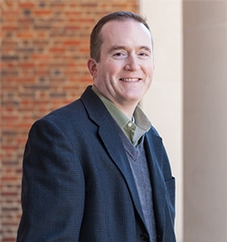Dear Brothers and Sisters in Christ,
 A hot topic in the media these days is the way Christians respond to LGBT (lesbian, gay, bisexual, transgender) issues. A few weeks ago, Greg Williams, Charles Albrecht, Rick Shallenberger and I participated in a day-long discussion on this topic sponsored by the National Association of Evangelicals (NAE). We gleaned much helpful information—I’ll share some of it with you here.
A hot topic in the media these days is the way Christians respond to LGBT (lesbian, gay, bisexual, transgender) issues. A few weeks ago, Greg Williams, Charles Albrecht, Rick Shallenberger and I participated in a day-long discussion on this topic sponsored by the National Association of Evangelicals (NAE). We gleaned much helpful information—I’ll share some of it with you here.
Because same-sex marriage has been legalized in some states, pastors are being asked if they will officiate at same-sex weddings. During the gathering, an attorney explained that while the media tends to sensationalize reports of certain litigation, clergy will not be forced to perform same-sex marriages in the U.S. in the foreseeable future.
 A presentation that was particularly relevant to pastoral ministry was given by Dr. Mark Yarhouse (pictured at left). Mark is an ordained elder, a faculty member in the doctoral program in clinical psychology at Regent University in Virginia and founding director of the Institute for the Study of Sexual Identity. He’s written two books: Homosexuality and the Christian, A Guide for Parents, Pastors, and Friends and Understanding Sexual Identity, A Resource for Youth Ministry. He blogs at http://psychologyandchristianity.wordpress.com.
A presentation that was particularly relevant to pastoral ministry was given by Dr. Mark Yarhouse (pictured at left). Mark is an ordained elder, a faculty member in the doctoral program in clinical psychology at Regent University in Virginia and founding director of the Institute for the Study of Sexual Identity. He’s written two books: Homosexuality and the Christian, A Guide for Parents, Pastors, and Friends and Understanding Sexual Identity, A Resource for Youth Ministry. He blogs at http://psychologyandchristianity.wordpress.com.
In his NAE presentation, Dr. Yarhouse identified three lenses through which people tend to view same-sex attraction:
- The integrity lens, which tends to focus on how integrity and sacredness of male and female differences are key.
- The disability lens, which tends to focus on how sexual orientation/identity is a reflection of the non-moral aspect of our broken and fallen world.
- The diversity lens, which tends to focus on how relationships and community present us with a call to compassion and the recognition of diversity.
Because each lens has strengths and limitations, Mark advocates that we take into account the strengths of all three. This broader perspective recognizes that God has ordained male and female differences as part of his good creation. It also recognizes that we live in a broken, fallen world where no aspect of life (physical, social, psychological, economic or political) remains untouched by the Fall and our sin. Though we celebrate the good differences of being male and female, we recognize that gender distinctions often are expressed in ways that display our brokenness. We also realize that sexuality is not the most important factor in our identity. Our calling, relationship and identity in Christ is the first and most important thing for all humanity.
In creating us human, God gave us a common nature and destiny. And while we have these similarities, we also have differences. Sexual identity, job identity, positional identity and all other forms of identity are secondary subsets of who we are and are becoming. This is where the gospel must remain clear and not be diverted to lesser issues in response to an agenda being set by society. The gospel is about our identity and relationship to God and his relationship to us, now and forever. The gospel is not primarily about our social identity, our brokenness, or even our sin. It is about who we are and who we are becoming under the grace of God through Christ in the power of the Spirit.
Gospel-focused pastoral care does not mean that we never talk about sin, but it does mean that we don’t use sin (or particular sins) as a means to divide others from us. We don’t allow sin to be the primary means of identifying who we are. Instead, we realize that we are all forgiven sinners and have all fallen short of the glory of God. The apostle Paul gave us the proper way to relate to anyone in any kind of sin: “Love never fails” (1 Corinthians 13:8). This is nailed down well in a statement attributed to C.S. Lewis:
There is someone that I love enough even though I don’t approve of what he does. There is someone I accept, though some of his thoughts and actions revolt me. There is someone I forgive, though he hurts the people I love the most. That person is me. (Quoted in UnChristian: What a New Generation Really Thinks about Christianity… and Why It Matters, p. 198).
Lewis pointed out another important understanding in one of his letters:
I take it for certain that the physical satisfaction of homosexual desires is sin. This leaves the homosexual no worse off than any normal person who is, for whatever reason, prevented from marrying… Our speculations on the cause of the abnormality are not what matters and we must be content with ignorance. The disciples were not told why (in terms of efficient cause) the man was born blind (John 9:1-3): only the final cause [ultimate purpose], that the works of God should be made manifest in him. This suggests that in homosexuality, as in every other tribulation, those works can be made manifest: i.e. that every disability conceals a vocation, if only we can find it, which will “turn the necessity to glorious gain.” (Quoted from a 1954 letter from Lewis in Sheldon Vanauken’s A Severe Mercy, pp. 146-148).
As the NAE gathering drew to a close, we found consensus on these key points:
- We define marriage as being between a man and a woman.
- We are not required to perform any marriage, homosexual or heterosexual.
- As Christians, we are opposed to verbal or physical abuse of anyone in the LGBT community or any other community.
- We should point out that singleness is a spiritual gift.
- We understand marriage to be the exclusive biblically-sanctioned context for expressing sexuality.
These points are relevant to pastoral ministry and I believe we all can accept them. Greg, Charles, Rick and I spent extra time talking about singleness as a spiritual gift. Unfortunately the words and actions of some churches imply that if you are single, you are somehow not a whole person. But that viewpoint is wrong—it flies in the face of the gospel, which proclaims that it is Jesus who makes us whole. Jesus was single and Paul wrote about singleness as a gift (1 Corinthians 7:1-40). We hope to address this topic in the future. In the meantime, let me recommend the resources listed in my PS below.
 Another highlight of the NAE gathering was a presentation from Christopher Yuan (pictured at right). He told us that while attending dental school he began using illicit drugs and living promiscuously as a homosexual. Within a few years, he had been expelled from school, imprisoned for drug dealing and found to be HIV-positive. He now lives an abundant new life in Christ, is a graduate of Moody Bible Institute and Wheaton College Graduate School, and is now pursuing a doctorate at Bethel Seminary. At http://youtu.be/NJdEZv_24Uk you’ll find a video of a panel discussion that includes Christoper. The discussion has some of the most helpful material I’ve found on same-sex attraction. What Sam Allberry says is especially helpful (Sam is the author of a book entitled Is God Anti-gay?).
Another highlight of the NAE gathering was a presentation from Christopher Yuan (pictured at right). He told us that while attending dental school he began using illicit drugs and living promiscuously as a homosexual. Within a few years, he had been expelled from school, imprisoned for drug dealing and found to be HIV-positive. He now lives an abundant new life in Christ, is a graduate of Moody Bible Institute and Wheaton College Graduate School, and is now pursuing a doctorate at Bethel Seminary. At http://youtu.be/NJdEZv_24Uk you’ll find a video of a panel discussion that includes Christoper. The discussion has some of the most helpful material I’ve found on same-sex attraction. What Sam Allberry says is especially helpful (Sam is the author of a book entitled Is God Anti-gay?).
Though some declare celibacy impossible for gay people because their homosexual orientation is the “unifying center of their consciousness,” I believe that Jesus and Paul would disagree. Both were unmarried celibates who went out of their way to praise the single (celibate) life. This does not mean that our gender as men and women who have particular sexual orientations is irrelevant or an unimportant aspect of who we are. But first and foremost, we belong to Christ and are called to die daily so as to be transformed and grow up continually in him. Our sexual orientation and marital/single status can never be as important to us as our union with Christ and our calling to live a new life in him—a life lived in the hope of where he is taking us as his beloved children. In Christ we are members of his body and thus members one of another. Together we live at the foot of the cross—in the light of his holy, loving and transforming grace. We are brothers and sisters in Christ. That is our true identity!
Our calling as pastors is always to share the good news, which says that God’s love for us is not conditioned by our sexuality, our relationship status, or anything else. He loves us unconditionally because he is our Father and we are his children. He forgives all our sin so that we might be reconciled to him. As pastors and church leaders, we always need to promote positive views and examples of marriage and sexuality. In the same vein, we need a more robust view of singleness, friendship and simply being brothers and sisters in the body of Christ.
Living and sharing the gospel with you,
Joseph Tkach
P.S. Here are some additional resources related to this topic. I think you’ll find them helpful:
- Dr. Gary Deddo’s papers at http://www.trinitystudycenter.com/topical/why-we-are-gendered-beings-g-deddo.pdf and http://www.trinitystudycenter.com/topical/trinityandgender.pdf.
- NAE’s booklet, “The Theology of Sexuality” at http://nae.net/theology-of-sex/.
- Ron Sider’s Christianity Today blog post at http://www.christianitytoday.com/ct/2014/november-web-only/ron-sider-tragedy-tradition-and-opportunity-in-homosexualit.html.
- N.T. Wright’s presentation at http://youtu.be/AsB-JDsOTwE.



Indeed a timely subject, also in Europe (allthough currently the terrorist incident in Paris dominates the news). The NAE “consensus points” are helpful and your comments reflect a balance that I can only most approvingly welcome and fully endorse.
Thanks much.
Blessings,
Santiago
Thought-provoking, balanced, and challenging of assumptions – especially one of the most commonly held one – that our primary identity is sexual or other than who we are and are becoming in Christ. Great guidance on handling this often emotional and controversial subject.
A well-written, thought-provoking work reminding us that sexual identity is not our primary definition of who we are is Jenell Williams Paris’ book titled “The End of Sexual Identity: Why Sex Is Too Important To Define Who We Are”
Thanks, Joe, for the timely reminder and guidance!
YBIC,
Gabriel
As a supplement to Joe’s helpful letter, readers might find of interest a series of blogs on The Surprising God, covering the topic of Trinitarian ethics. The series is indexed at http://thesurprisinggodblog.gci.org/2012/08/fundamental-to-any-discussion.html